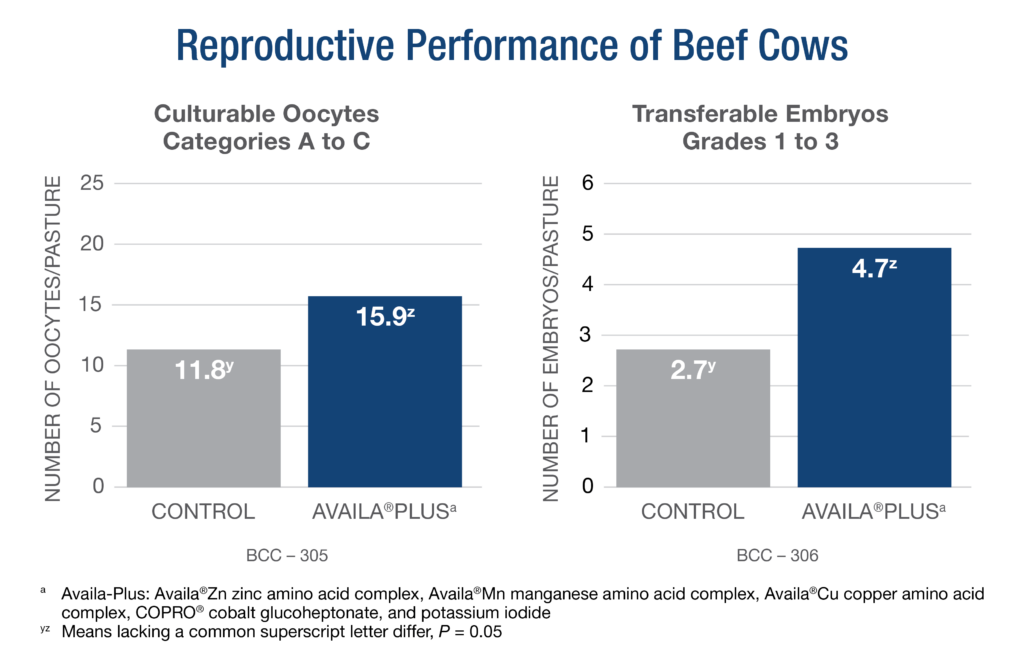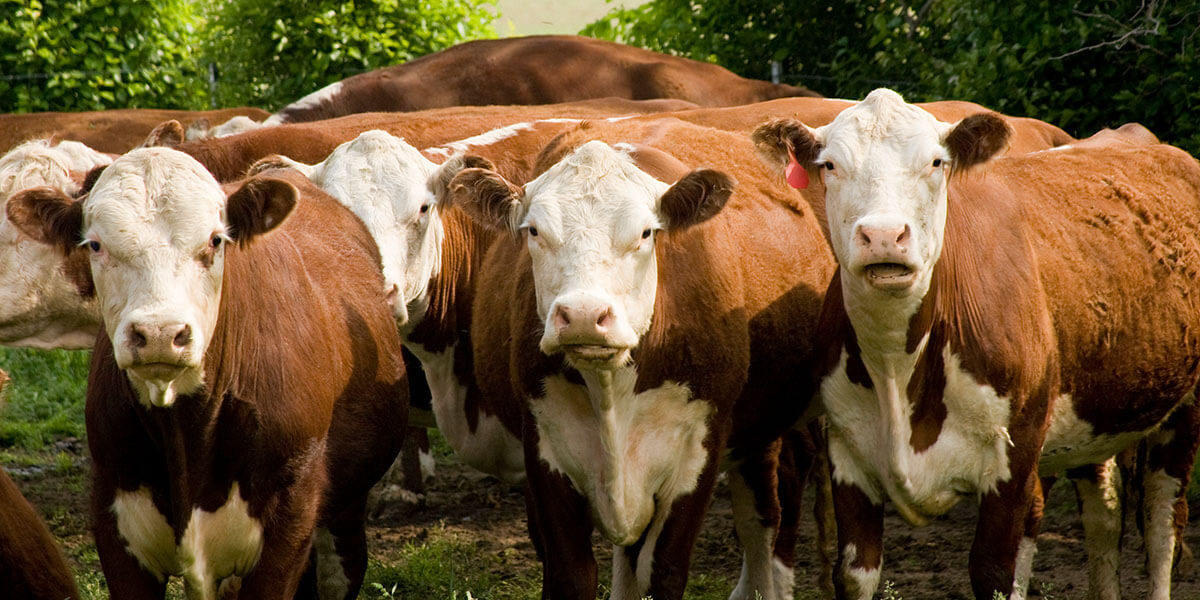In vitro fertilization (IVF) embryo production is becoming more common in beef cattle production and is even more prevalent in dairy production. In vitro fertilization is the process of harvesting oocytes (unfertilized eggs) from a cow and fertilizing them in a petri dish. After spending seven days in an incubator, the embryos are evaluated for quality. High-quality embryos can be transferred immediately into recipient cows that will carry the pregnancy or the embryos can be frozen for later transfer to recipients.
The production and transfer of bovine IVF embryos has more than tripled over the last 15 years. The International Embryo Technology Society reports that, in 2018, an estimated 750,000 bovine IVF embryos were produced, compared to 406,000 in vivo embryos.
On a beef operation, the expectation is that cows will give birth to calves on a calendar-year basis. In vitro fertilization is powerful, as it provides us an opportunity to gather oocytes from cows without interrupting their reproductive calendar. Producers can collect oocytes from cows even if they are pregnant, up to the point where the fetus and placenta settle over the pelvis and ovaries are no longer within reach. Cattle producers using in vitro fertilization have an opportunity to produce more offspring from valuable females (open cows, pregnant cows, replacement heifers) in their herd and in a shorter time period.
In addition, in vitro fertilization can maximize the use of valuable (rare, sexed, expensive) semen. One unit of semen can be applied to oocytes from multiple donors, or semen from several different bulls may be used to fertilize a group of oocytes collected from an elite female.
In vitro fertilization allows us to increase production of high-value genetics that produce higher-quality meat or provide superior milk production, improving sustainability.
Reducing Embryonic Loss with Better Beef Cow Nutrition
A major challenge that producers face with beef cattle reproduction is that as much as 70% of all pregnancy loss occurs within the first 45 days of gestation. Anything producers can do to decrease embryonic loss during that time will have major impacts on the overall success of a pregnancy.
Another challenge facing producers is that beef cattle reproduction is the lowest priority in terms of where nutritional resources are allocated. Maintenance is most important, and immunity and growth are the next priorities. Reproduction is the last priority for energy and nutritional resources. Anytime a beef cow has poor nutrition status or requires nutrients and energy to deal with stress or an immune challenge, reproduction will be the first thing that is sacrificed in order to fulfill requirements by the other biological priorities.
In the case of replacement heifers and young cows, these females are reproducing while continuing to grow to their mature size, lactate and raise their calves. It’s important for beef producers to recognize that optimum nutrition is essential for optimum reproductive performance.
Improve Oocyte and Embryo Production With Performance Trace Minerals
A research study, conducted by Zinpro® at the East Tennessee AgResearch and Education Center (ETREC) in Alcoa, Tennessee, evaluated the impact of performance trace minerals on in vitro embryo production in lactating beef cows. Throughout the study, cows grazed fescue and red clover pastures. This is the first industry research study to analyze the impact of performance trace minerals, like Zinpro® Performance Minerals®, on IVF embryo production.
68 post-partum cows were arranged by bodyweight, body condition score and parity before being randomly assigned to either Zinproâ Availaâ Plus or a control diet:
· Zinpro Availa Plus: Beef cows were supplemented with Zinpro Availa Plus performance trace mineral formula consisting of zinc, manganese, copper and cobalt from Zinpro sources, plus potassium iodide, fed as part of a complete free-choice supplement.
· Control: The supplementation included formulations similar to the treatment group, but from inorganic sources.
Thirty days after the start of their treatments, cows were artificially inseminated in order to remain on their normal reproductive schedule. Pregnancy diagnoses were performed on day 58, and nonpregnant cows were removed from the study to eliminate pregnancy as a variable. At this time, cows fed Zinpro Availa Plus had a pregnancy rate of 64.7%, compared to just 52.9% for the cows fed inorganic trace minerals. Following pregnancy diagnosis, the 38 pregnant females (20 Zinpro Availa Plus, 18 control) that remained on study were separated into 5 pastures per treatment (10 pastures total). Pastures continued to receive their respective treatments.
On days 82 and 97, the research team performed oocyte pickup, aided by ultrasound. In order to evaluate natural follicle development, follicle-stimulating hormone was not used in this investigation. Culturable oocytes were fertilized and re-evaluated eight days later to analyze the early impact of performance trace mineral nutrition on IVF embryo production. The statistical analysis accounted for the number of cows per pasture.
The study revealed that Zinpro Availa Plus had a positive impact on beef cattle reproduction during the first eight days, which represents the beginning of a crucial first month and a half of pregnancy where 70% of embryonic losses occur. Cows fed Zinpro Availa Plus were 43% more likely to produce a more culturable oocyte and 75% more likely to produce an embryo that can be transferred to a recipient compared to the cows fed inorganic trace minerals.
Beef cows fed Zinpro Availa Plus with the treatment diet also showed improved reproduction efficiency. Cows fed inorganic trace minerals needed to generate more than twice as many culturable oocytes in order to generate a high-quality, transferrable embryo.

Improving Lifetime Performance Before Conception
When producers are investing resources in reproductive technology, picking the right genetics and choosing high-quality semen, it’s also important to invest in performance trace minerals. You wouldn’t enter a race with a high-performance vehicle and use standard-grade gasoline, so why would you take your highest-performing cows and feed them a low-performing, inorganic trace mineral?
Supplementing beef cow nutrition with Zinpro Availa Plus increases IVF embryo production efficiency and improves performance year-round.
Download this research summary to learn more about how Zinpro Performance Minerals® help produce higher-quality oocytes and more culturable embryos with in vitro fertilization. To learn more about including Zinpro Availa Plus in your beef cattle nutrition plan, contact your Zinpro representative today.

